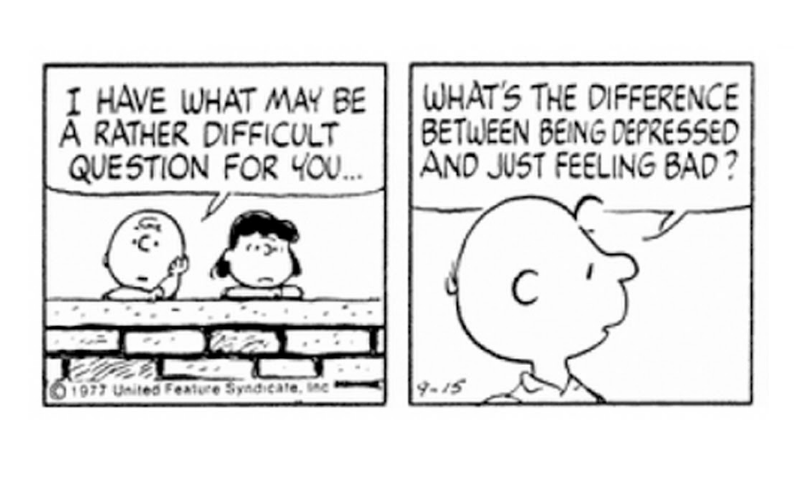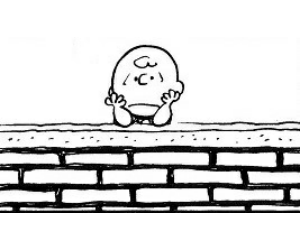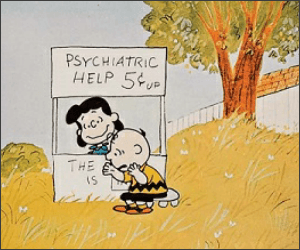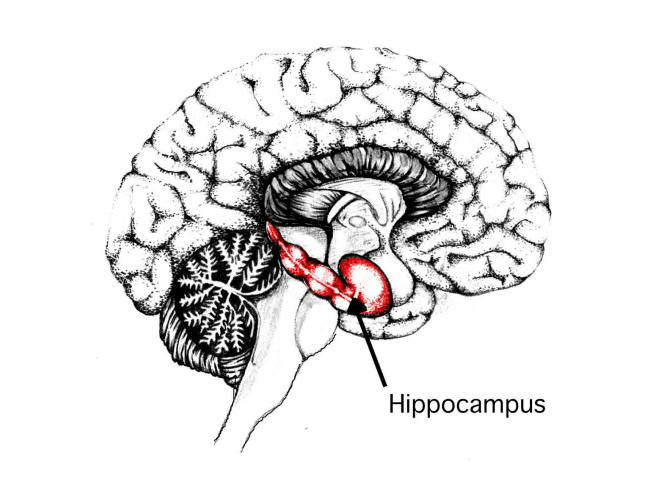
You might agree with me that Depression is an important topic nowadays. The reasons are quite clear; with the first and foremost one being its commonality. In spite of this, I feel (and I expect you’ll concur with me) that there is still great misconception and, therefore, stigma surrounding not only specifically this subject, but many other mental-health related issues. I believe this is due to lack of information, and this is precisely why we are going to further our discussion about mild depression and severe depression here today.
So, please read carefully, because there is a question waiting for you at the end of the post. 😊
Throughout this post let’s keep in mind that depression is an emotional disorder. It is an emotional state that we all experience at some point in life. And here is a question I am often asked whenever this discussion arises:
‘when is sadness or low mood officially considered a disorder?’
First, it is important to understand that there is a vast range of depressive experiences within a continuum; which go from feelings of ordinary sadness to attempts at suicide.
All of us experience sadness or even mild-depression following stressful events that involve loss - a break-up, loss of a job, for example. This is indeed an expected, healthy response to such situations. After a while most people embrace their new reality, overcome their grief and move on in life. These people show resilience.
Psychological Resilience
Resilience is the ability to recover quickly from adversities or stressful events and changes.
This is a notion that drew great interest from academics that conducted studies in emotionally adjusted adults who when children were maltreated and lived in extreme poverty. As children they were described as being loving, alert and with good personalities. All characteristics that helped them to obtain support from teachers, social-workers and other suitable adults. Despite everything, they were confident and had a positive outlook in life.
These were understood to be their coping strategies, which later in their adult years enabled them to have close friends as well as a long term partners.
Very much like in children adults exhibit resilience through different strategies. For example, some will just be pragmatic. They set a goal to get through the situation ‘no matter what!’ While other people just adopt what psychologists call repressive coping; basically, these are the people who ‘hide’ their sadness and difficult feelings, but ‘plough through the situation’.
Further still, it is also believed that certain individuals are genetically predisposed to show resilience. More evidence is needed to support this belief, though.
The most interesting thing I find about this topic, however, is that it has been found that resilience is an ability way more present in humans than previously believed. Now you may ask why this is important! Well, it is important because nowadays; particularly in Western cultures people are rather quick to resort to interventions to get rid of their difficult emotions.

My Friend’s Son
Take the case of a close friend of mine, for example. Luca is his 19-year-old son who is struggling with the choices he is facing about his future. He is unhappy at university and seems ‘uninterested’ and ‘disconnected’. His parents, in desperation, decided to take him to a psychologist who quickly referred him to a psychiatrist. Luca is now unwillingly under anti-depressant medication.
From a psychological perspective, I will tell you why this intervention may be an issue. Research has found that this may interfere with the person’s natural mechanisms of dealing with trauma. For example, not long ago, the immediate psychological treatment of victims found in violent and traumatic episodes was a largely adopted approach. However, it has now fallen out of favour because there is little evidence available in the literature to show that such interventions prevent PTSD. Sometimes it is better just to let people be for a while.
Fortunately, there are indeed several mechanisms that we turn to - consciously or not - to get through the set-backs life throws at us. Namely, taking some time alone, going to church, crying, playing an instrument etc. Then, we dust ourselves off and keep going.
Severe Depression
However, for some people, this is not possible. They remain in a state of mild depression for a long time. Instead of taking on board coping strategies, they struggle to find ways to make themselves feel better. In this sort of scenario what begins as mild-depression gradually develops to what clinicians call severe depression.
This is a good time to revisit that question I said I am often asked whenever this sort of conversation arises, and also the continuum. Do you remember the continuum?
‘when is sadness or low mood officially considered a disorder?’
Here a psychologist or a psychiatrist draws a line on that continuum based on a categorical diagnostic system - which I wrote about on my post The Diagnosis of Mental Illness – that helps them to decide if a client is afflicted by a particular disorder or not through the symptoms they exhibit.
For example, Luca (my friend’s son) presents primary symptoms: he has lost interest in his photography and playing with his little sister (this would be classified as his ‘usual activities’). Nonetheless, he has not exhibited: a different sleeping pattern, irritability or feelings of inappropriate guilt. All regarded secondary symptoms, among a few others.
Now, having a client presenting such symptoms would be a case where the prescription of anti-depressant medication is more suitable. In fact, according to NICE, individuals suffering from mild-depression are not recommended to undergo anti-depressant medication. For the very reasons we learnt during our discussion about resilience. So, what would be a good alternative for Luca instead of his medication?
Overcoming Mild Depression – exercising, making an effort to reengage in the activities he has been putting off. This is when a friend or family member could show their support and accompany him during an afternoon to take photos in the park, and bring his little sister with them. Brief psychological therapy sessions would be a good option to add to this list, but they would not be essential.
But, what about a more severe case?
Overcoming Severe Depression

Anti-depressants are recommended in such cases and you might be curious why. We could use Mr. B’s case (from my previous post) once again for purposes of illustration. By now you understand he presented what is categorized as secondary symptoms. Prior to his treatment, Mr. B thought he was a failure at everything. So, for several people in a similar situation, the SSRI drug fluoxetine (Prozac or Sarafem), for instance, has a beneficial psychological effect that enables them to see their situation from a more positive angle.
Biological psychology puts forward an assumption to explain this. I am fascinated by it, by the way. Although it lacks conclusive proof, there is a growing body of evidence to support its validity. It has been termed the Brain-Mind assumption and proposes the following:
Brain events and mind events are intimately related, so much so, that there is a corresponding brain event for each mental event.
Let’s discuss this further, Mr. B’s mental state prior to taking his medication was one of negative emotions, which according to the assumption described above, is related to a particular brain activity pattern. But then, the anti-depressant acts on Mr. B’s brain changing a certain pattern of activity – increasing levels of serotonin – correspondingly, improving his mood. But, wait a minute, this is not as straight-forward as it might sound! This is why there are a few very important points I would like to highlight about this particular class of drug (SSRIs). Therapeutic effects are only observed from three to five weeks after treatment begins, despite the immediate increase in neurotransmitters. Also, side-effects are immediately felt and they include: fatigue, gastric disorders and sexual dysfunction among others.
Additionally,
Research has found that part of the efficacy of mood-altering medication is a consequence of the expectation about their effects – an instance of the placebo effect
Alongside medication, therapy sessions are also recommended to help the individual overcome severe depression.
At this point you may, perhaps, be asking yourself:
Why some people struggle to defeat mild-depression and become severely depressed?
The types of depression that are associated with damaged hippocampus may offer a possible answer to this question.

You might have noticed now that depression often arises as a consequence of one isolated stressful event or a number of them. Luca has one particular thing stressing him out, while Mr. B had had several, and for quite a while. Drawing from the understanding that stress affects the structure of many parts of the brain developmental biologists proposed the Life-cycle model of stress, which suggests that stressful events affect the brain structure that are developing most rapidly at the time of the stressful experience.
Studies in rats that had been exposed to stressful situations when they were pups found that they presented damaged hippocampus; which caused effects that were difficult to reverse, and that played a role in their behaviour. In the human brain this is an area which actively develops both prenatally and during the first two years after birth. This finding is particularly relevant for mental-health professionals because the hippocampus is an area that also plays a part in controlling the HPA axis – a system that operates in stress responses.
This association damaged hippocampus – difficult stress response also exists in humans, as it is well-established that depressed people present a smaller hippocampus then those not suffering from depression. A study conducted in a group of depressed women who had suffered child-abuse and a group of depressed women who had not suffered child abuse demonstrated that the hippocampal size of the depressed woman who had not been abused as children was similar to that of women who were neither depressed nor had experienced child abuse, while the abused women’s hippocampus was much smaller.
This indicates that depressed adults whose hippocampus have been damaged by chronic stress during adult years present a scenario that can be more easily reversed.
Still, as you might expect this is only one out of a few different explanations for why depression sometimes is triggered and becomes difficult to be reversed in some people.
[Original Content by Abigail Dantes - 2018]
Reference List:
APA (2000), Diagnostic and Statistical Manual of Mental Disorders, 4th edn.
Bonanno, G.A (2004), ‘Loos, trauma and human resilience: have we underestimated the human capacity to thrive after extremely aversive envents?’, American Psychologist, vol. 59, vol. 59, no. 1, pp. 20-8.
Heim, C., Newport, J., Mletzko, T., Miller, A.H. and Nemeroff, C.B. (2008) ‘The link between childhood trauma and depression: insights from HPA axis in humans’, Psychoneuroendocrynology, vol. 33, pp. 693 – 710.
Heim, C., Newport, J., Heit S., Graham, Y.,Wilcox, M., Bonsall,R. et al. (2000) ‘Pituitary-adrenal and autonomic responses to stress in women after sexual and physical abuse in childhood’, Journal of America Medical Association, vol. 284, pp. 592-7.
Marques, A.H. and Stenberg, E.M (2007) ‘The biology of positive emotions and health’, in Post, S. (ed.) Altruism and Health: Perspective from Empirical Research, New York, Oxford University Press, pp. 149-88.



Dear Reader,
Now that you have made it here I have a very simple question for you: how has this post improved your understanding of depression? Take your time! The reason I am asking you this is because you are my partner on this journey to rid misconception about mental-health, and whatever your answer to my question is I know it will be the information you will pass on to your friend, neighbour and family member. 😊
Thank you so much for reading.
